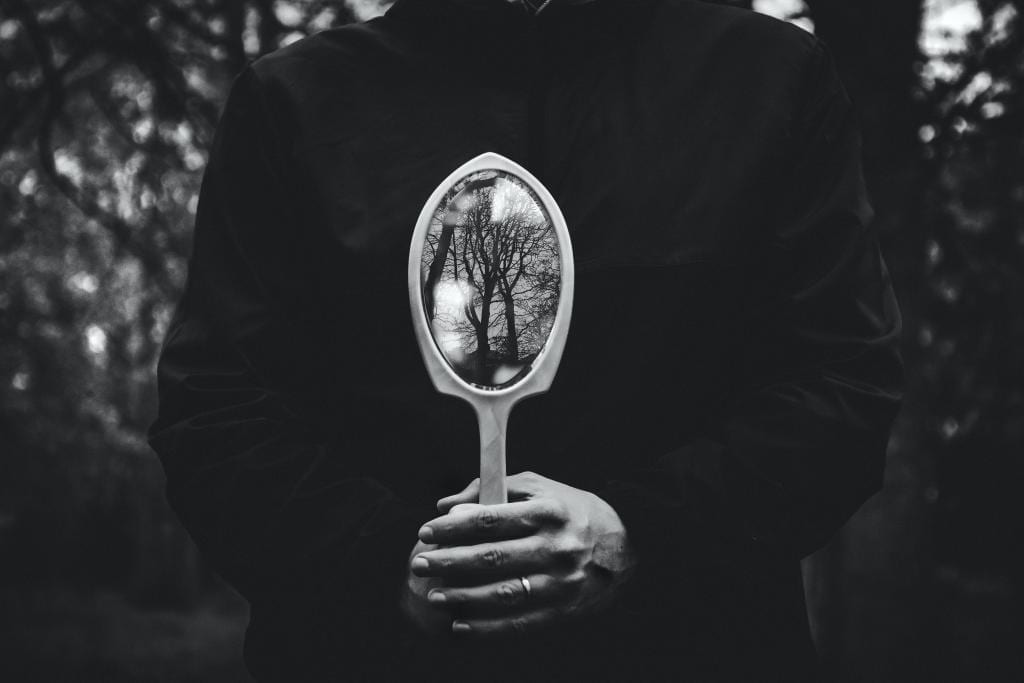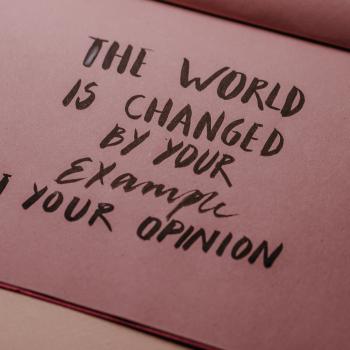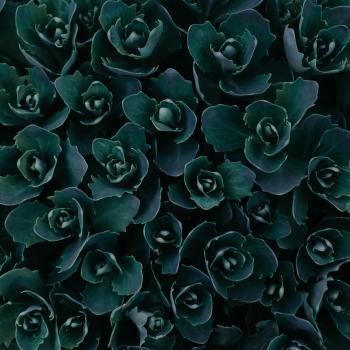
At the beginning of my time on Patheos Pagan I wrote “I don’t belong here. It’s likely that I’m bad at whatever it is that Pagan author types are supposed to be doing; and I’m still pretty convinced that I’m in one of those sitcom type ‘wrong place right time’ stories.” I wish I could say that this feeling has abated, but it has not. Some days, I think I’m just really bad at all this. *gestures vaguely* It has left me pondering lately on what it means to be a “big name pagan” or “content creator” or “influencer” or any other similar phrase that I am not or don’t aspire to be (okay, I get that I make content, stick with me).
Divisions
2020 was a year of divisiveness if nothing else. Those who wore masks, and those who did not. Those who are Christian, and those who are not. Those who believe in dinosaurs, communicable illnesses, and the efficacy of vaccines – and, um, those with IQ scores of a dubious nature. In the “pagan” community, we are no different. There are those who balk loudly and firmly at supporting (implicitly or otherwise) things that have done and continue to do harm, as well as populists who try to remain neutral and palatable to all.
Among those populists you may even find those who work very hard to convince you that they are not – in fact, it’s their ‘brand’ if you pay close attention. It’s a place where performative wokeness comes from those who openly (and perhaps jokingly) call themselves cyber bullies, those who wax on about how JK Rowling had a point – just made it too strongly, who have bibliographies riddled with Nazi sympathetic materials, or say that trans inclusivity is just too complex to discuss outside of a face to face conversation, and other such quietly awful nonsense. When the Black Mirror mockumentary “Goodbye 2020” jokingly quipped that we have two divided extremes with Ned Flanders in the middle I didn’t agree – but as they put it, the edges are awfully sharp.
The Problem
Rarely are influencers occupying the same space with the community, or sharing the same concerns, and when I became an author for Llewellyn (and ultimately found myself on Patheos Pagan), my mistake was (apparently) still being a part of the community. I wrote a book because I wanted to make something better, and as I dug into blogging on Patheos, the things I wanted to write about were the things I was interested in as the non-notable that I am. The honest truth is that I’m a rather accidental content creator. I just want to write, to make magic, to teach – I don’t care about being popular or even, well, successful.
But I’m no better than any of what I’ve described. I really do want to make people aware of the book I wrote, and I’m certain I will make mistakes and not realize someone/something I’ve supported either vocally or by association is awful, but we cannot allow ourselves to fall into the trap of tolerating the intolerable because of a false sense of connection. It seems sometimes that having the word “author” on your resume, means we’re a part of some inner circle, bound to one another in word and actions, but having “Llewellyn” or “Weiser” or even “Patheos” in common doesn’t mean we’re family, or even in agreement. These platforms are just that, a place upon which we might stand – shouting into the void.
Controversies
Some of us create controversy in the Pagan sphere by speaking our truth (whatever that means), and others through supporting things we as a community can’t abide. I wondered to myself if others felt the same knot in their stomach as I do when posting content. Silent echoes of ‘did you think there wouldn’t be blowback,’ ‘well connected people,’ of hate mail, and of threats, thinly veiled or otherwise, bouncing around in the back of their mind. Is it different, I wondered, for men to write controversial content? Does it cross their mind that perhaps there will be death or rape threats? That readers might comment on their “hysterical” or “cranky” tone, or posit that a post like that would only happen if they were “on their period?” Do they wonder if this post will illicit as many pieces of “junk” mail as the last?
Perhaps these are only concerns for everyone else; some of us just don’t have the luxury of knowing everything will be okay if we push the boundaries.
You can’t take what I’m willing to give away
If one day no longer a columnist on Patheos Pagan, it will have been my decision – not because anyone took it from me with covertly threatening messages behind the scenes, or because of hate mail, and certainly not because someone “hexed” or “cursed” me. It will be because I have decided. The same will be true if I ever stop writing books (though I’m sad to report that your curses will have to wait for me to fulfill the many contracts I’ve already signed), or if I stop teaching workshops, or if I throw my hands in the air and wave a middle finger at it all. It will have been my choice. Hell. At this point, the worst harm you could do me is to wish me success – because it would mean I have to keep on existing on the fringes of this ridiculous high school cafeteria nonsense.
It’s sort of darkly funny to me sometimes to look around at those who threaten doxxing, hexes, curses, or who fire off angry messages at what they don’t like as though it’s fine to take pot shots at someone’s livelihood because you were bothered that someone other than a man had a strong opinion about you or someone you like, or because they’re “different.” In fact, I think it takes a stunning amount of privilege to even consider it. But to my detractors I would say: there’s nothing you can do that I haven’t already survived. I’m just here to do my thing. To create. As my grandmother used to say – ‘come hell or high water,’ I’m not going away any time soon, and I’m going to keep on being a hard line in the sand that often says “no.”
I’m not going to lie about something I didn’t like, and I’m not going to wave away misdeeds just to make things convenient or comfortable for anyone.
The redemption arc
But does anyone get a second chance? Of course. There’s nothing more satisfying in all the world than taking a destructive person (or even a flawed, but good person) and transforming them into something that could be someone to aspire to. It isn’t easy; but we all want to feel as though we can be forgiven for our mistakes, so we make room for that forgiveness. But for a redemption arc to work, that destructive character must atone for their wrongs and overcome their flaws. They must let their guard down, and prove their redemption by acting counter to their former self.
Perhaps that will mean admitting that they didn’t understand the full impact of their actions. Perhaps for some it will mean trading a perception of power for vulnerability. But it will “at the end of the day, redemption arcs matter because of what they represent—hope. We’ve all done things we regret […] and redemption arcs remind us that there is always a chance […] if we work hard and genuinely grow into better people, we can not only heal ourselves, but our connection to others.” As Henry Wadsworth Longfellow said “It takes less time to do things right than to explain why you did it wrong,” and until we invent an empathy chip, we’re just going to have to keep listening to others, and truly hear them when they say we – or others – have caused them harm.

















